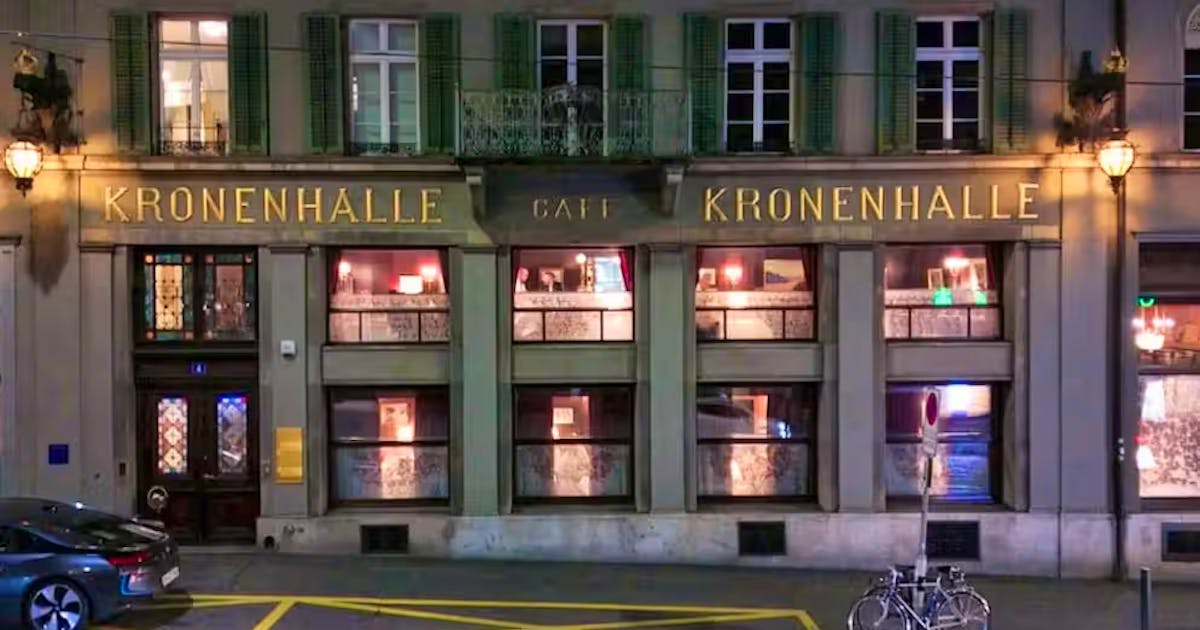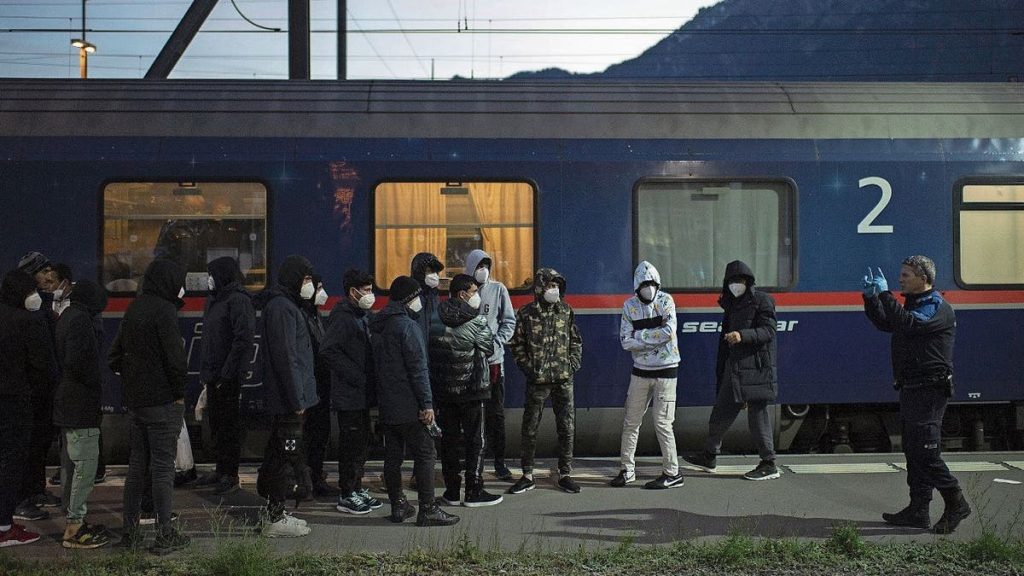readmission agreement
Afghan immigrants illegally entering Switzerland: This is what Federal Councilor Keeler Sutter said
Afghans travel to eastern Switzerland every day. But only about 10 percent of them apply for asylum in Switzerland. The readmission agreement with Austria needs updating.
Dozens of Afghan immigrants enter Switzerland from Austria every week. Here at the train station in Buchs, St. Gallen.
Switzerland is a transit country. This applies not only to the movement of goods by road and rail between northern and southern Europe. It is also currently a transit country for Afghan immigrants from Austria to Switzerland.
In November alone, according to the Federal Customs Administration, about 1,000 Afghan nationals crossed the border irregularly, mainly in the Rhine Valley of St. Gallen. Only about 10% of them apply for asylum in Switzerland. Most of them go underground after collecting their personal data and traveling to France – and from there some to Great Britain.
In France, people do not enjoy entering across the Swiss border. A week ago, the newspaper “Le Parisien” reported that 41 Afghans had arrived in the Gare de Lyon area of Paris in a TGV car coming from Zurich. According to the newspaper, some of them reported that the Swiss authorities funded the train tickets.
The State Secretariat for Immigration (SEM) is working to clarify the “background of these press reports”. Even if officially funded TGV tickets are probably a false rumor: France is now looking to stop trains from Switzerland to the border in order to intercept and return illegal immigrants.
St. Gallen would like more help from Austria
Just as one is upset with Switzerland in France, one is upset with Austria in this country. For example, the St. Gallen cantonal police with the participation of the Federal Police Office (Fedpol) intervened and asked the Austrian authorities to curb smuggling activity.
Officially everything is running smoothly. “Cooperation under the Dublin procedure with Austria is very good and constructive,” the Federal Council answered a question from National Chancellor Mike Egger (SVP) in September.
The readmission agreement has existed since 2001, which regulates the terms and formalities for the return of persons who have entered illegally. There is no evidence of Austria’s refusal to implement this agreement.
However, improvements are desirable and discussions are underway to update the takeover agreement. “The common goal is to further improve and make practical cross-border cooperation more effective,” he and SEM say.
When is the review ready to sign? Talks with the Austrians are proceeding “thanks to the current agreement without time pressures,” the MWA wrote, “there is no deadline for its conclusion.”
One sees things differently in the damaged border canton of St. Gallen. In order to reduce the number of irregular border crossings, negotiations with Austria on the simplified readmission agreement are “of central importance,” the Government Council wrote at the end of November in response to the questioning of the First Vice President.
Gallen’s director of security, Freddy Fassler (SP) has the impression that “no more progress” has been made in talks since the summer, he said when asked. He attributes this to the severe migration situation. The situation was relatively calm until the summer.
But since then Austria has seen a significant increase in asylum applications from Afghans. In the months of August, September and October there was more than double the number until June, and the trend is on the rise.
Despite the growing numbers: Vienna is in no hurry
This certainly did not improve the principled position for a successful conclusion of talks on the recovery agreement. “It is clear that preventing Afghans from continuing their journey to Switzerland or speedy repatriation to Austria is not currently a top priority in Vienna,” said government adviser Fassler. Frankly, one has to say that this is also not the case for Switzerland with immigration movements to France.
As head of the immigration office in St. Gallen, Jörg Eberle is busy returning Afghans to Austria. And he shares his boss’s assessment, Freddy Fassler: “In a situation as acute as the one we currently face in both countries, it is certainly difficult to reach an agreement,” says Eberl.
He confirms that the cooperation is working well. But: “We would have liked to reduce the procedures and restrictions related to the location and time window for readmission,” says Eberl.
Keller Sutter sees the problem elsewhere
Justice Minister Karin Keeler-Sutter told Swiss Radio with the change in the management team that there is currently no update to the restitution agreement: “My colleague of the Minister of the Interior, Karl Nahammer, is the chancellor. Of course, this now will lead to some delays.”
In general, convention is not the primary nuisance. Keller Sutter: “Discomfort is secondary migration that occurs on a large scale.” Afghans do not come directly from Afghanistan, but via Greece or Turkey. Most of them started the asylum procedure in Austria, and these are the Dublin cases. “These people can’t choose where they want to live as asylum seekers,” says Keller-Sutter.
The Minister of Justice considered media reports that Switzerland is buying TGV tickets for asylum seekers “hot air”: “It is certainly not the case that our border guards go to buy 40 tickets in the TGV. This is ridiculous.”

“Tv specialist. Friendly web geek. Food scholar. Extreme coffee junkie.”





More Stories
North Korea has a new (propaganda) song, sorry sausage
Plane from Olympic Airlines: Ellinikon's Boeing 727 is designed in a new location
The United Nations must come to the rescue – also in Geneva – News